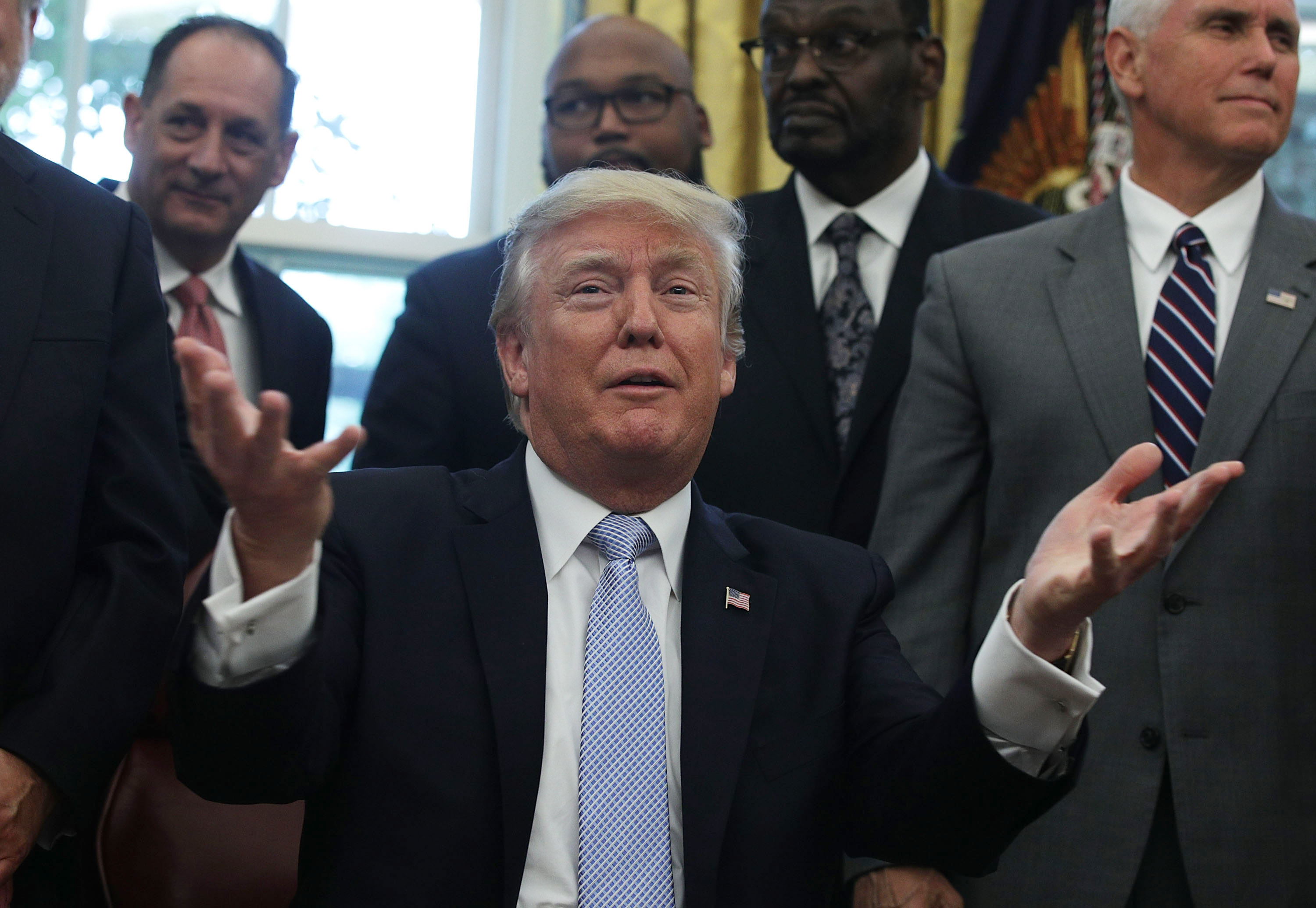President Donald Trump is adopting a new approach to governing after a rocky start to his term.
One adviser told Axios’ Mike Allen that after seven months in office, the president finally realized, “people really f—ing hate me.”
Trump’s decision this week to work with House minority leader, Nancy Pelosi, and Senate minority leader, Chuck Schumer, may signal that he’s open to pivoting to a different strategy after hovering at record low levels of popularity during his first seven months in office: working across the aisle.
Earlier this week, Trump sided with congressional Democrats to bundle Hurricane Harvey relief funds, a three-month debt-limit increase, and a three-month continuing resolution to keep the government funded. The decision pitted Trump against leaders of his own party who wanted a longer extension on the debt ceiling.
House Speaker Paul Ryan had hours earlier called a three-month debt-limit increase "ridiculous" and said Democrats were trying to "play politics" by suggesting tying in aid for Harvey relief.
As the leaders appeared ready to agree to disagree, Trump reportedly interjected and said the group should go with a three-month debt-limit extension and a three-month continuing resolution.
One senior administration official told Axios that Trump's deal with the Democrats had come because "he just wanted to do something popular." The president, famed for his focus on the way he's perceived in the media, reportedly basked in the praise he received from "Morning Joe" after the deal was struck.

Trump has appeared to grow impatient with Republican leadership in recent months after several botched attempts at passing healthcare reform. His relationship with Senate majority leader Mitch McConnell has reportedly soured since the failed effort, and Trump has openly backed primary challengers to congressional Republicans like Arizona Sen. Jeff Flake, who frequently criticizes him.
Axios reported that by working with Democrats, Trump could be hoping to boost his popularity with the American public and engineer a turnaround in which he can blame congressional Republicans for legislative setbacks. The pivot could also be reflective of the new environment Trump created in the West Wing after dismissing divisive, nationalist figures like former chief strategist Steve Bannon. With Bannon gone, the more moderate faction of the West Wing, consisting of New Yorkers like economic adviser Gary Cohn and senior adviser Jared Kushner, will likely hold more sway over the president's decisions.
Trump's compromise with the Democrats may prove useful in the future as well, when he'll need votes from across the aisle as he works to push more legislation and reform. Republicans are acutely aware of that possibility, Axios reported. One Republican told the news website that Trump "accepted a shakedown when he was holding all the cards ... This is quite literally a guy who watches 'ER' trying to perform a surgery."

